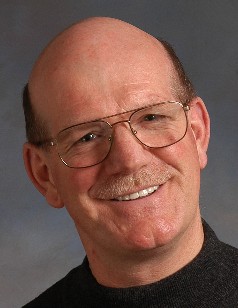 Privacy is hard to come by in India—for me, at least. I’m living in a guest house, which more often than not has other guests. I usually eat in a public dining area where other guests join me for dinner, or I join them. Out and about, being “white,” there’s no way I can blend into a crowd. I feel I'm the center of attention, and I'm not being egotistical.
Privacy is hard to come by in India—for me, at least. I’m living in a guest house, which more often than not has other guests. I usually eat in a public dining area where other guests join me for dinner, or I join them. Out and about, being “white,” there’s no way I can blend into a crowd. I feel I'm the center of attention, and I'm not being egotistical.This is not a bad thing; it just takes some getting used to. But there’s one thing you can do in India that you can’t do at home any more, and that's enjoy freedom from electronic surveillance.
For years now I’ve been warning my students at the University of Pittsburgh at Johnstown that “privacy is dead.” Books have been written about this, so it’s not as if I’m revealing a state secret.
Ever since computers started talking to each other (1950s), people have dreamed of connecting them to form a web that would encompass the globe. By 1996, this web (the World Wide Web) had reached a stage of maturity where everyone and their uncle wanted to climb on board. But long before this, in the 1970s, businesses such as the banking industry already wanted us to use credit cards to conduct financial transactions (ATMs). Soon we were using those credit cards for shopping, too—at stores and gas stations and so forth; then we used them to shop online after 1996.
Ever checked in at a hospital? You know the drill; you wait till you’re called to a data entry work station where a clerk fills out an online form with all the details of your treatment—to add to all the other details about your medical history that have been amassed over time.
We willingly give up all this information about ourselves—our shopping habits, our medical condition, our financial status—because we like the convenience and efficiency of it all. We want to use the Web for myriad purposes, fully knowing that our every word and deed is being tracked and logged, whether we like it or not.
It’s not being tracked, initially at least, by a person—that would be humanly impossible. No, it’s being tracked by highly sophisticated networks of computers which are programmed to sift through the mass of data about each and every one of us, profiling us, and fitting us into more and more tightly indexed categories. This data is then shared (sold) to the highest bidder, which includes not just every enterprise that wants to sell us something but also, one way or another, the federal government.
And now they’re installing cameras everywhere, too, connected to computer systems, which are programmed to recognize who we are and to automatically take action if there’s any reason to do so. Again, this is not necessarily a bad thing, as long as we’re aware that it’s going on.
Case in point in the UK, where I originally hail from. One of my brothers-in-law, whose wife, Mary, must be the only woman in the world who routinely tells her hubbie: “Frank,” (‘cos that’s his name) “for heaven’s sake, drive faster!” was astonished to get a hefty speeding fine in the mail. It’s a bit of a joke now, and he loves to take out the paperwork to proudly show it off.
“See, honey,” he smiles, “I got a speeding fine just like everyone else.”
In India, I use an ATM to get cash and use that to buy everything I need. I don’t use the Internet nearly as much as I do back home in the States because the connection speed is so slow here. I’ve never been one to use the phone much either; just a daily call to Marilyn is about it.
I’ve not had to go to hospital here yet, though I’m told the hospitals are excellent. I have, however, had to get treatment, including antibiotics, for “Delhi Belly,” and I discovered to my delight that no prescription was necessary, not a computer was in sight, and the cost was a fraction of what insurance companies make us pay back home.
In this neck of the global woods, my physical appearance makes me stand out like a sore thumb, but at least I’ve regained some privacy of the electronic kind.

No comments:
Post a Comment